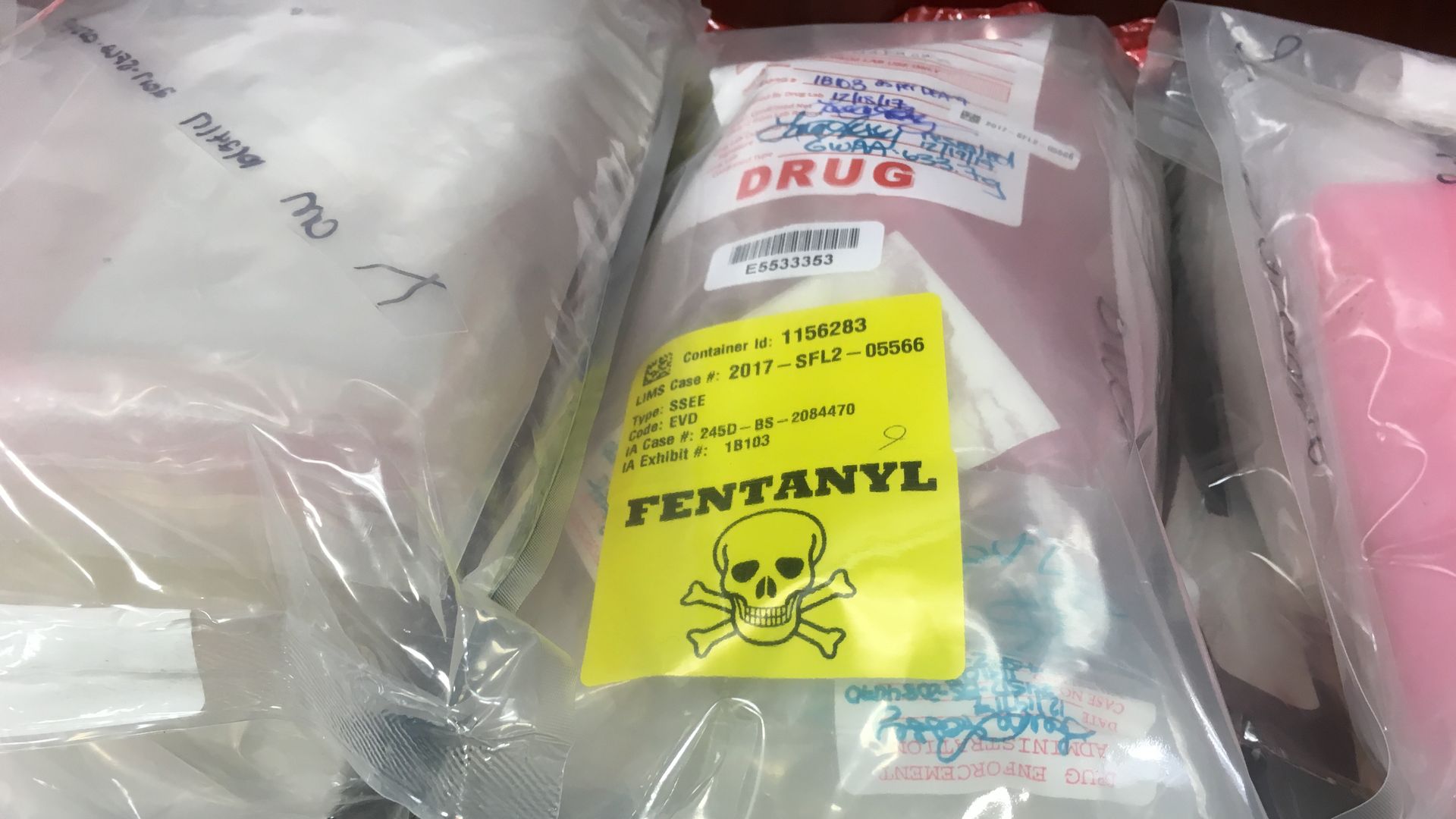Synthetic opioid crisis still growing, often among unwitting users
Add Axios as your preferred source to
see more of our stories on Google.

A bag of fentanyl seized by law enforcement. Photo: David L. Ryan/The Boston Globe via Getty Images
Although opioid prescriptions in the U.S. have fallen, opioid overdose deaths — 47,000 in 2018 — remain at historic levels. The continued spread of fentanyl and other illicitly manufactured synthetic opioids suggest the problem could still get worse.
The big picture: Inexpensive and widely available on the internet, fentanyl is attractive to dealers who make counterfeit prescription pills or mix it into heroin. Fentanyl, however, is extremely potent, leading more users to fatally overdose.
What's happening: So far, fentanyl deaths are largely concentrated in parts of Appalachia, the mid-Atlantic and New England, with western states less exposed.
- This geography mirrors an established, but not permanent, division in the heroin market: Powder heroin is predominant in the east; tar heroin is more common west of the Mississippi River. It’s easier to mix powder fentanyl in with powder heroin.
- Delaying fentanyl from getting entrenched in the west — even by a couple of years — could prevent thousands of deaths.
- Yes, but: This isn’t just about contaminated heroin. Traffickers are also pressing fentanyl into counterfeit tablets made to look like prescription pills.
Between the lines: Fentanyl isn’t attracting new drug users. Rather, it’s an ingredient suppliers use to cut costs but most consumers seek to avoid (heroin import prices are at least 100 times higher per dose).
- The problem is thus more like a poisoning outbreak than a traditional drug epidemic driven by user demand.
- Meanwhile, the rise of e-commerce has made it easier to order fentanyl online, most often shipped from China.
- Synthetic opioids are also mentioned in an increasing number of cocaine and methamphetamine deaths (though it is unknown if fentanyl was added by suppliers or taken separately by users). One analysis from Ohio, however, found fentanyl in 12% of retail-level cocaine seizures.
What to watch: With the Oct. 2 federal ruling in favor of Philadelphia’s proposed supervised consumption site, other jurisdictions may give such facilities a more serious look. Expect further discussion about improving fentanyl detection technologies and pilot programs for prescription heroin too.
Go deeper: Read “The Future of Fentanyl and Other Synthetic Opioids” from RAND.
Bryce Pardo is an associate policy researcher at the RAND Corporation. Beau Kilmer is the director of the RAND Drug Policy Research Center.

